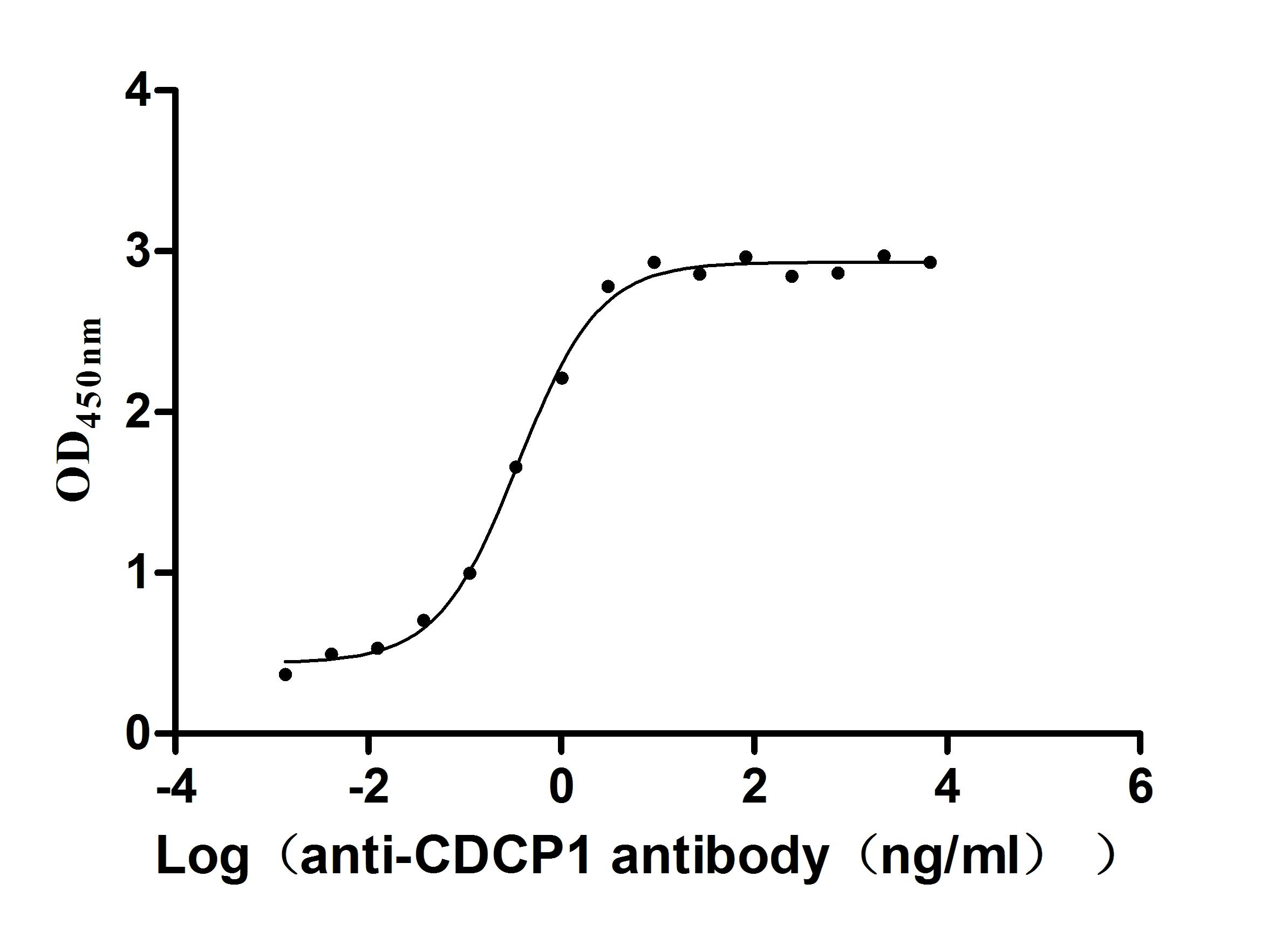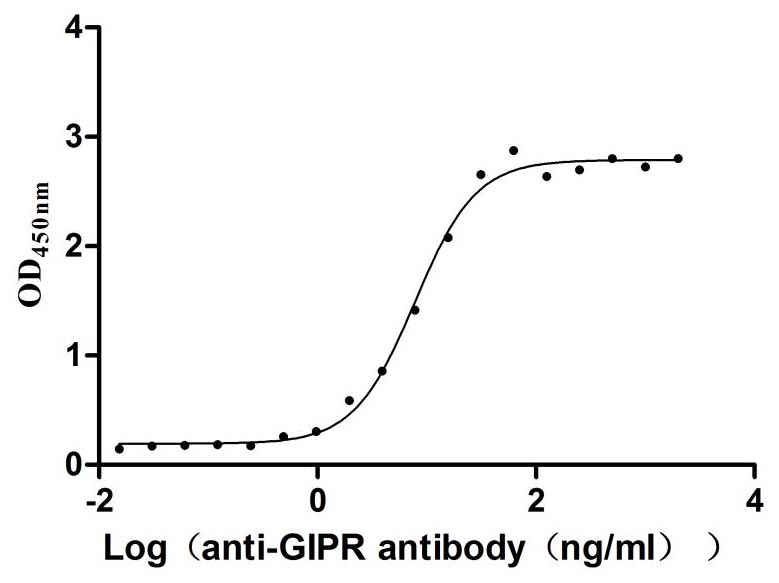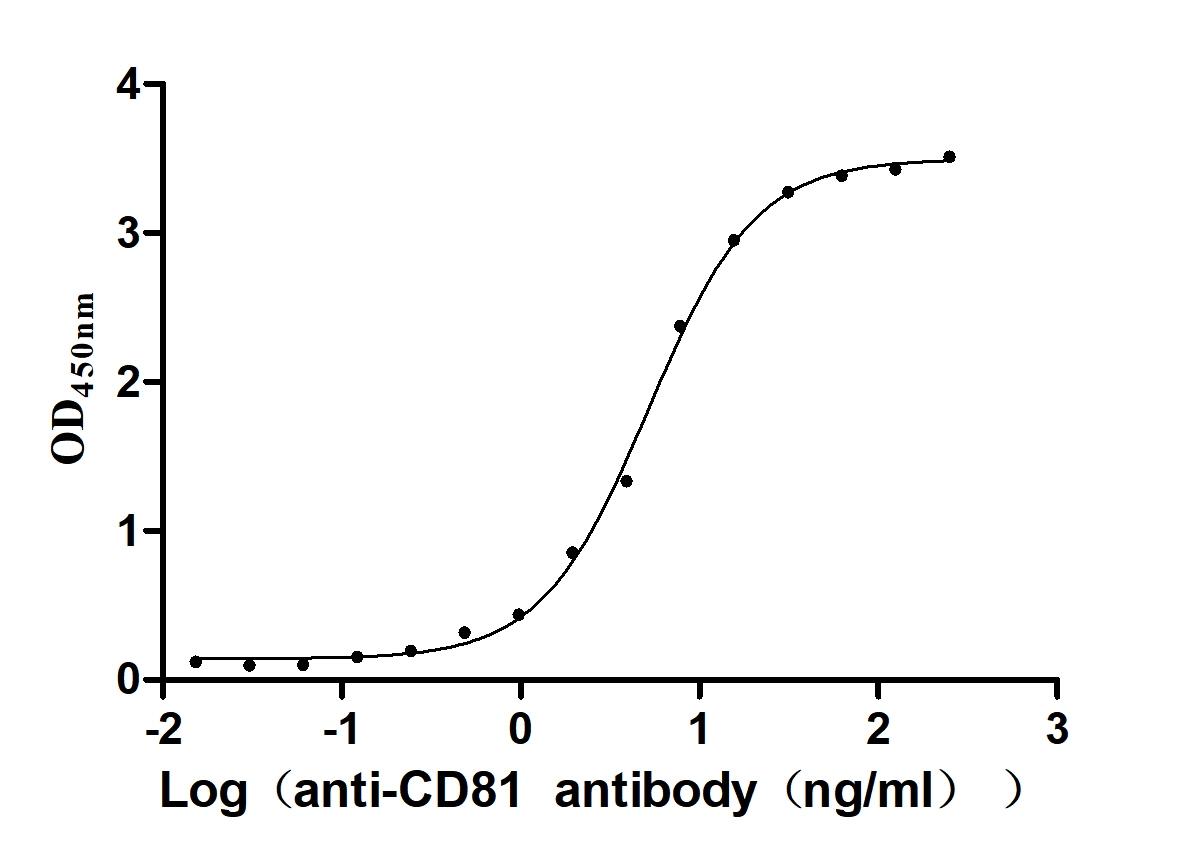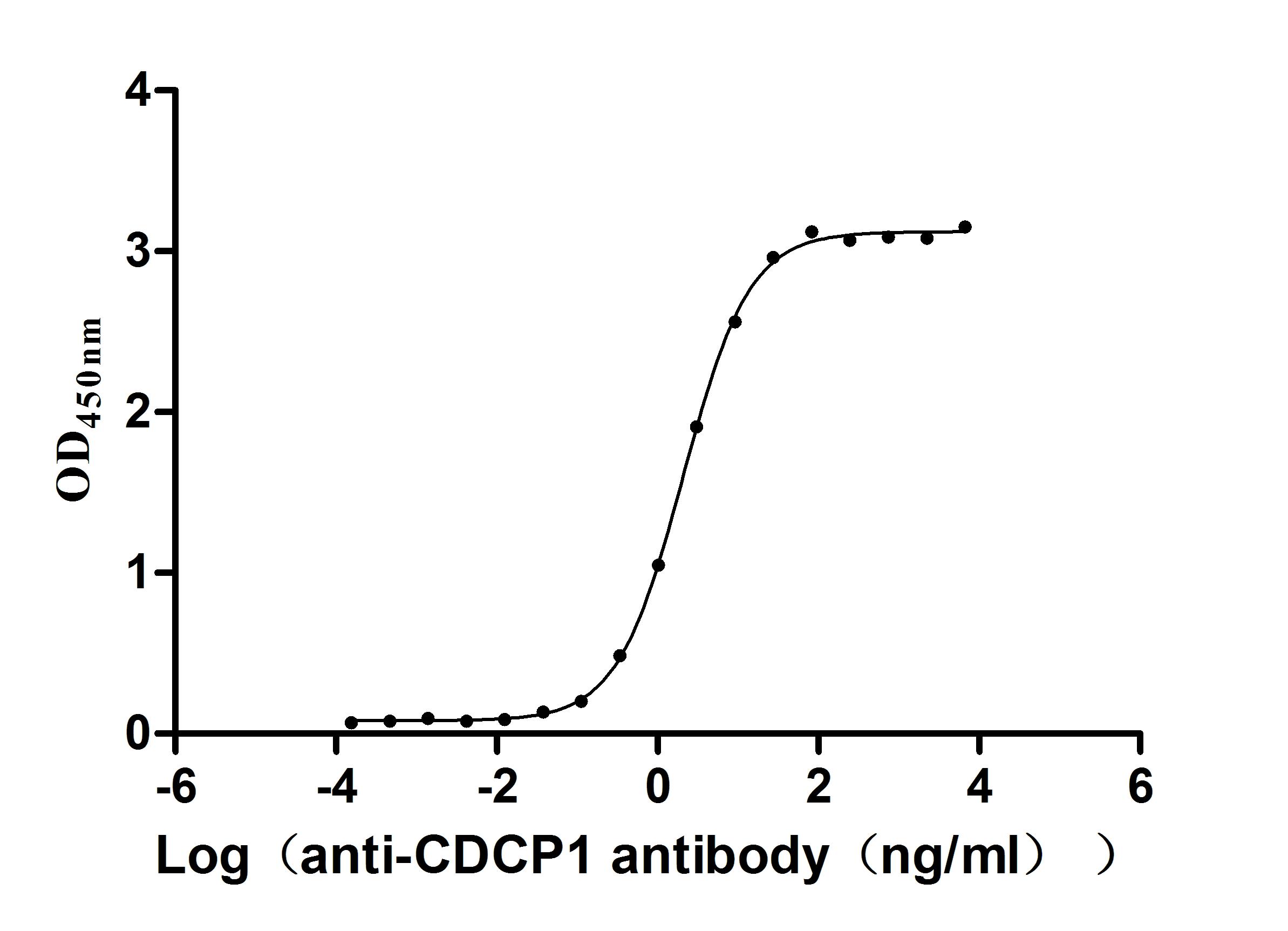Recombinant Mouse Transforming growth factor beta-1 proprotein (Tgfb1), partial (Active)
In Stock-
货号:CSB-AP004111MO
-
规格:¥1740
-
图片:
-
其他:
产品详情
-
纯度:Greater than 95% as determined by SDS-PAGE.
-
内毒素:Less than 0.01 EU/µg as determined by LAL method.
-
生物活性:The ED50 as determined by its ability to inhibit IL-4-dependent proliferation of TF‑1 human erythroleukemic cells is 5-25 pg/ml.
-
基因名:
-
Uniprot No.:
-
别名:Tgfb1; Transforming growth factor beta-1 proprotein [Cleaved into: Latency-associated peptide; LAP); Transforming growth factor beta-1; TGF-beta-1)]
-
种属:Mus musculus (Mouse)
-
蛋白长度:partial
-
来源:Mammalian cell
-
分子量:12.8 kDa
-
表达区域:279-390aa
-
氨基酸序列ALDTNYCFSSTEKNCCVRQLYIDFRKDLGWKWIHEPKGYHANFCLGPCPYIWSLDTQYSKVLALYNQHNPGASASPCCVPQALEPLPIVYYVGRKPKVEQLSNMIVRSCKCS
-
蛋白标签:Tag-Free
-
产品提供形式:Liquid or Lyophilized powder
Note: We will preferentially ship the format that we have in stock, however, if you have any special requirement for the format, please remark your requirement when placing the order, we will prepare according to your demand. -
缓冲液:Lyophilized from a 0.2 μm Filtered 4 mM HCl
-
储存条件:Store at -20°C/-80°C upon receipt, aliquoting is necessary for mutiple use. Avoid repeated freeze-thaw cycles.
-
保质期:The shelf life is related to many factors, storage state, buffer ingredients, storage temperature and the stability of the protein itself.
Generally, the shelf life of liquid form is 6 months at -20°C/-80°C. The shelf life of lyophilized form is 12 months at -20°C/-80°C. -
货期:Basically, we can dispatch the products out in 1-3 working days after receiving your orders. Delivery time may differ from different purchasing way or location, please kindly consult your local distributors for specific delivery time.Note: All of our proteins are default shipped with normal blue ice packs, if you request to ship with dry ice, please communicate with us in advance and extra fees will be charged.
-
Datasheet & COA:Please contact us to get it.
相关产品
靶点详情
-
功能:Transforming growth factor beta-1 proprotein: Precursor of the Latency-associated peptide (LAP) and Transforming growth factor beta-1 (TGF-beta-1) chains, which constitute the regulatory and active subunit of TGF-beta-1, respectively.; Required to maintain the Transforming growth factor beta-1 (TGF-beta-1) chain in a latent state during storage in extracellular matrix. Associates non-covalently with TGF-beta-1 and regulates its activation via interaction with 'milieu molecules', such as LTBP1, LRRC32/GARP and LRRC33/NRROS, that control activation of TGF-beta-1. Interaction with LRRC33/NRROS regulates activation of TGF-beta-1 in macrophages and microglia. Interaction with LRRC32/GARP controls activation of TGF-beta-1 on the surface of activated regulatory T-cells (Tregs). Interaction with integrins (ITGAV:ITGB6 or ITGAV:ITGB8) results in distortion of the Latency-associated peptide chain and subsequent release of the active TGF-beta-1.; Multifunctional protein that regulates the growth and differentiation of various cell types and is involved in various processes, such as normal development, immune function, microglia function and responses to neurodegeneration. Activation into mature form follows different steps: following cleavage of the proprotein in the Golgi apparatus, Latency-associated peptide (LAP) and Transforming growth factor beta-1 (TGF-beta-1) chains remain non-covalently linked rendering TGF-beta-1 inactive during storage in extracellular matrix. At the same time, LAP chain interacts with 'milieu molecules', such as LTBP1, LRRC32/GARP and LRRC33/NRROS that control activation of TGF-beta-1 and maintain it in a latent state during storage in extracellular milieus. TGF-beta-1 is released from LAP by integrins (ITGAV:ITGB6 or ITGAV:ITGB8): integrin-binding to LAP stabilizes an alternative conformation of the LAP bowtie tail and results in distortion of the LAP chain and subsequent release of the active TGF-beta-1. Once activated following release of LAP, TGF-beta-1 acts by binding to TGF-beta receptors (TGFBR1 and TGFBR2), which transduce signal. While expressed by many cells types, TGF-beta-1 only has a very localized range of action within cell environment thanks to fine regulation of its activation by Latency-associated peptide chain (LAP) and 'milieu molecules'. Plays an important role in bone remodeling: acts as a potent stimulator of osteoblastic bone formation, causing chemotaxis, proliferation and differentiation in committed osteoblasts. Can promote either T-helper 17 cells (Th17) or regulatory T-cells (Treg) lineage differentiation in a concentration-dependent manner. At high concentrations, leads to FOXP3-mediated suppression of RORC and down-regulation of IL-17 expression, favoring Treg cell development. At low concentrations in concert with IL-6 and IL-21, leads to expression of the IL-17 and IL-23 receptors, favoring differentiation to Th17 cells. Stimulates sustained production of collagen through the activation of CREB3L1 by regulated intramembrane proteolysis (RIP). Mediates SMAD2/3 activation by inducing its phosphorylation and subsequent translocation to the nucleus. Can induce epithelial-to-mesenchymal transition (EMT) and cell migration in various cell types.
-
基因功能参考文献:
- this paper shows that epithelial-derived TGF-beta1 acts as a pro-viral factor in the lung during influenza A infection PMID: 29067998
- Study points toward elevated levels of active TGF-beta as inducers and promoters of ectopic bone formation, and suggest that TGF-beta might be a therapeutic target in heterotopic ossification. PMID: 29416028
- The comparison of transforming growth factor beta family (TGFbeta) expression showed significantly higher levels of Tgfbeta3 transcript between nude and Balb/c mice but no differences were detected for Tgfbeta1. Nude DFs were specifically sensitive to the presence of the pro-regenerative TGFbeta3 isoform, showing increased collagen I deposition and alpha smooth muscle actin expression. PMID: 29637306
- Results indicate that the miR-23a cluster regulates osteocyte differentiation by modulating the TGF-beta signalling pathway. PMID: 28397831
- Following Schistosoma exposure, TSP-1 levels in the lung increase, via recruitment of circulating monocytes, while TSP-1 inhibition or knockout bone marrow prevents TGF-beta activation and protects against pulmonary hypertension development. PMID: 28555642
- TGF-beta/Smad proteins signaling affects radiation response and prolongs survival by regulating DNA repair genes in malignant glioma. PMID: 30230914
- The results indicate that EGFR and its activation are critical for YAP-mediated suppression of TGF-beta1-induced apoptosis. This study provides a new understanding of the regulatory mechanism underlying the determination of cell fate in response to TGF-beta1-mediated simultaneous apoptosis and epithelial mesenchymal transformation. PMID: 28425446
- transforming growth factor beta (TGFbeta) signaling was upregulated in HSCs from bone marrow of mice with MLL-AF9-induced acute myeloid leukemia (AML) because of excessive production of TGFbeta1, especially from megakaryocytes, and overactivation of latent TGFbeta1 protein. PMID: 29307605
- TGF-beta release from platelets is necessary for podoplanin-mediated tumor invasion and metastasis in lung cancer. PMID: 28176852
- Data suggest partial or complete transforming growth factor beta 1 (TGFBI) knockdown as a potential therapy against TGFBI-linked corneal dystrophies. PMID: 29117645
- De novo formation of the biliary system by TGFbeta-mediated hepatocyte transdifferentiation PMID: 29720662
- CXCL9 may promote prostate cancer progression via inhibition of cytokines from T cells. PMID: 29901197
- EGCG attenuated airway inflammation in asthmatic mice, decreased the percentage of Th17 cells and increased the percentage of Treg cells. The antiinflammatory effect of EGCG is achieved via the TGFbeta1 signaling pathway. PMID: 29916550
- fibrosis induced by Ang II may be alleviated by AKAP12 expression through inactivation of the TGF-beta1 pathway. PMID: 29501491
- RUNX1 promoted TGF-beta-induced partial EMT by increasing transcription of the PI3K subunit p110delta, which mediated Akt activation. PMID: 29759484
- Transforming growth factor-beta1 induces cerebrovascular dysfunction and astrogliosis through angiotensin II type 1 receptor-mediated signaling pathways PMID: 29505736
- TET2 plays an important role in the pathogenesis of diabetic nephropathy by activating TGFbeta1 expression through demethylation of CpG islands in the TGFbeta1 regulatory region PMID: 29705354
- early myocardial CTGF mRNA expression (six hours) after Ang-II exposure is likely dependent on latent TGF-beta activation via the canonical Smad-dependent pathway in resident cardiac cells. PMID: 29575960
- These results indicate that the hepatocytic expression of TGF-beta and CTGF is mediated by Wnt signalling in Schistosoma japonicum infection. PMID: 28331224
- Infection with Mycobacterium bovis results in increase in interleukin-1alpha, TGF-beta1, and MMP1 in multinucleated macrophages. PMID: 29504104
- type I and II IFN as in vivo modifiers of LIC fate that may significantly affect the impact of putative leukemia-driving activities such as the ETV6-RUNX1-mediated growth advantage in the presence of TGF-beta and TLR4-upregulated mutagenic activity PMID: 27220664
- Studies indicate key developmental processes that require transforming growth factor beta (TGF-beta) signaling [Review]. PMID: 29190317
- Osthole,a natural coumarin, decreases the collagen/III ratio in transforming growth factor beta 1 (TGF-beta1)-transfected mouse cardiac fibroblasts via the TGF-beta/Smad signaling pathway. PMID: 29860992
- both ERK and Smad2 signal pathways are involved in the activation of macrophages induced by TGF-b1 and high-ambient glucose, while there is no crosstalk shown in the process. PMID: 29199516
- In obese mice, periodontitis caused the downregulation of MMP2, and upregulation of TIMP1 and TGF-beta1 at transcriptional and translational levels PMID: 29322806
- The protective effect of the EP2 receptor on TGF-beta1 induced podocyte injury via the PI3K / Akt signaling pathway. PMID: 29746568
- This study demonstrates that prevention of renal apoB accumulation is a mechanism by which TGF-beta inhibition is nephroprotective. PMID: 28912302
- data show that increased TGFbeta in the tumour microenvironment represents a primary mechanism of immune evasion that promotes T-cell exclusion and blocks acquisition of the TH1-effector phenotype; immunotherapies directed against TGFbeta signalling may therefore have broad applications in treating patients with advanced colorectal cancer PMID: 29443964
- IL 6 and TGF beta perform essential role in cerebral malaria pathogenesis by modulating the level of glial cell induced neuroinflammation. PMID: 28803696
- The increased susceptibility to IMQ-induced psoriasis of GILZ-Tg mice was significantly associated with skin-specific over-activation of TGF-beta1-mediated signaling via SMAD2/3. PMID: 27934944
- The data suggest that B cells can down-regulate the function of antigen-presenting cells, and in turn encephalitogenic Th1/Th17 responses, via TGF-beta1. PMID: 27708418
- p-SMAD2/3 and p-ERK1/2 might play a regulatory role in TGF-beta1 induced CTGF exp p-SMAD2/3 and p-ERK1/2 might play a regulatory role in TGF-beta1 induced CTGF expression during tooth development. PMID: 28825193
- inhibiting NCAM1 would be cardioprotective, counteract the pathological action of TGFbeta1 and reduce heart failure severity. PMID: 28870505
- TGF-beta signaling has a role in inhibiting tumor progression and invasion in an induced mouse bladder cancer model PMID: 27378170
- calpains inhibition plays crucial roles in vascular restenosis by preventing neointimal hyperplasia at the early stage via suppression of the MMP2/TGF-beta1 pathway. PMID: 27453531
- Suggest an essential role for platelet-derived TGFbeta1 for the vascular remodelling response to arterial injury, apparently independent from the role of platelets in thrombosis or haemostasis. PMID: 28726976
- In cultured B16 melanoma and Bend3 endothelial cells treated with Bend3 conditioned media, MITF, tyrosinase, and melanin expression decreased due to TGFB1 secreted by the endothelial cells. PMID: 27172887
- Lycat regulates TGF-beta mediated lung fibroblast differentiation in pulmonary fibrosis. PMID: 28751023
- TFGbeta1 and arachidonic acid synthase expression is increased during the involution period in mammary glands. PMID: 28381667
- Chronic exercise suppressed the TGF-beta1/IkB-alpha axis in the hypothalamus and improved the energy homeostasis in an animal model of obesity-associated with aging. PMID: 28854149
- miR-146 inhibits skeletal muscle fibrosis by suppressing TGF-beta/Smad4 signaling pathway. PMID: 28510617
- Study shows that expression of Gadd45 family members is adjusted in response to KCl/depolarization, BDNF/TRKB, and/or TGFB-signaling. Additionally, results indicate decreased Gadd45 expression in a mouse model of depression, and that Gadd45b expression and DNA demethylation activate Arc transcription. PMID: 28444170
- Bioinformatics analysis provides positive supportive correlation between somatic mutations for VD-related genes and the TGF-beta pathway PMID: 27456065
- Taken together, these results indicate that eIF6 may be involved in external mechanical force-mediated murine dermal fibroblast function at least partly through the TGF-beta1/TGFBR1/TGFBR2 pathway. PMID: 27824055
- important roles in virtually every stage of neural development [review] PMID: 28130363
- These data suggest that the interplay between cell-matrix adhesion and intercellular adhesion is an important determinant for some aspects of TGFbeta1-induced epithelial-mesenchymal transition via alphaSMA expression induction. PMID: 27194451
- Excessive activation of TGFbeta by spinal instability causes vertebral endplate sclerosis and intervertebral disk degeneration. PMID: 27256073
- A Smad3-PTEN regulatory loop controls proliferation and apoptotic responses to TGF-beta in mouse endometrium. PMID: 28524854
- TGFss through the Alk1/TgfssR2 receptor axis is acting on endothelial cells to produce hematopoiesis. PMID: 29253505
- The adoptive transfer of NK1.1(-) CD4(+) NKG2D(+) cells suppressed DSS-induced colitis largely dependent on TGF-beta. Thus, NK1.1(-) CD4(+) NKG2D(+) cells exhibited immune regulatory functions, and this T cell subset could be developed to suppress inflammation in clinics. PMID: 28224733
显示更多
收起更多
-
亚细胞定位:[Latency-associated peptide]: Secreted, extracellular space, extracellular matrix.; [Transforming growth factor beta-1]: Secreted.
-
蛋白家族:TGF-beta family
-
数据库链接:
KEGG: mmu:21803
STRING: 10090.ENSMUSP00000002678
UniGene: Mm.248380
Most popular with customers
-
Recombinant Macaca fascicularis Angiotensin-converting enzyme (ACE2), partial (Active)
Express system: Mammalian cell
Species: Macaca fascicularis (Crab-eating macaque) (Cynomolgus monkey)
-
Recombinant Human CD226 antigen (CD226), partial (Active)
Express system: Mammalian cell
Species: Homo sapiens (Human)
-
Recombinant Human Claudin-6 (CLDN6)-VLPs, Fluorescent (Active)
Express system: Mammalian cell
Species: Homo sapiens (Human)
-
Recombinant Human CUB domain-containing protein 1 (CDCP1), partial (Active)
Express system: Mammalian cell
Species: Homo sapiens (Human)
-
Recombinant Rat Gastric inhibitory polypeptide receptor (Gipr), partial (Active)
Express system: Mammalian cell
Species: Rattus norvegicus (Rat)
-
Recombinant Human CD81 antigen (CD81), partial (Active)
Express system: Mammalian cell
Species: Homo sapiens (Human)
-
Recombinant Macaca fascicularis CUB domain containing protein 1 (CDCP1), partial (Active)
Express system: Mammalian cell
Species: Macaca fascicularis (Crab-eating macaque) (Cynomolgus monkey)

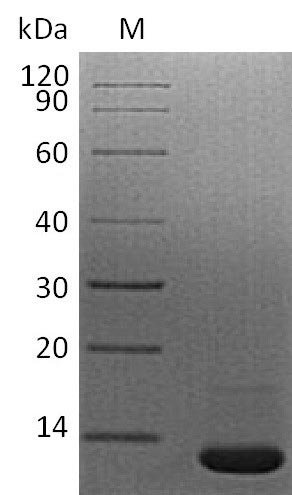



f4-AC1.jpg)
